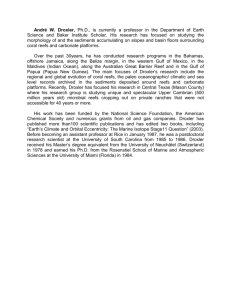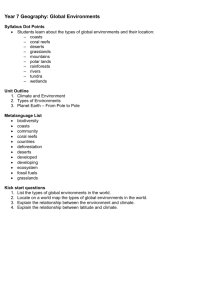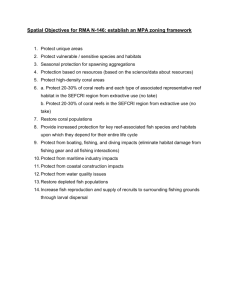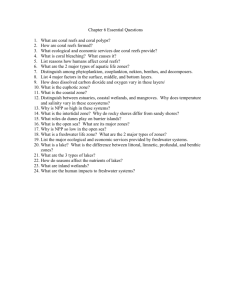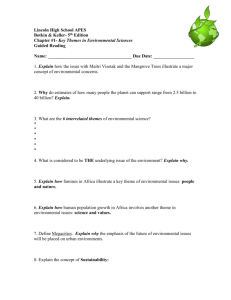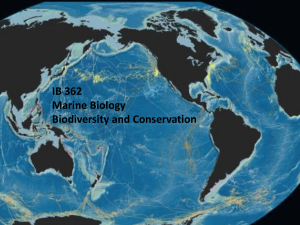Maymester 2010 Pathology of Coastal Organisms – ABIO 583
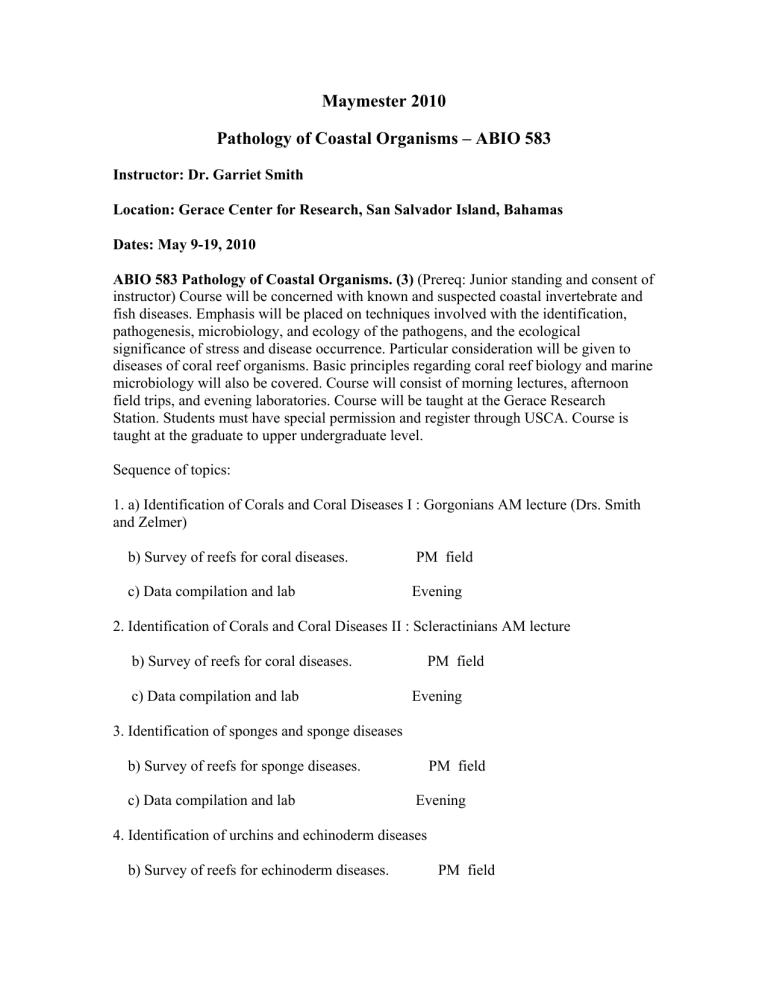
Maymester 2010
Pathology of Coastal Organisms – ABIO 583
Instructor: Dr. Garriet Smith
Location: Gerace Center for Research, San Salvador Island, Bahamas
Dates: May 9-19, 2010
ABIO 583 Pathology of Coastal Organisms. (3) (Prereq: Junior standing and consent of instructor) Course will be concerned with known and suspected coastal invertebrate and fish diseases. Emphasis will be placed on techniques involved with the identification, pathogenesis, microbiology, and ecology of the pathogens, and the ecological significance of stress and disease occurrence. Particular consideration will be given to diseases of coral reef organisms. Basic principles regarding coral reef biology and marine microbiology will also be covered. Course will consist of morning lectures, afternoon field trips, and evening laboratories. Course will be taught at the Gerace Research
Station. Students must have special permission and register through USCA. Course is taught at the graduate to upper undergraduate level.
Sequence of topics:
1. a) Identification of Corals and Coral Diseases I : Gorgonians AM lecture (Drs. Smith and Zelmer)
b) Survey of reefs for coral diseases. PM field
c) Data compilation and lab Evening
2. Identification of Corals and Coral Diseases II : Scleractinians AM lecture
b) Survey of reefs for coral diseases. PM field
c) Data compilation and lab Evening
3. Identification of sponges and sponge diseases
b) Survey of reefs for sponge diseases. PM field
c) Data compilation and lab Evening
4. Identification of urchins and echinoderm diseases
b) Survey of reefs for echinoderm diseases. PM field
c) Data compilation and lab Evening
5. Identification of fish and fish diseases
b) Survey of reefs for fish diseases. PM field
c) Data compilation and lab Evening
Three reefs will be surveyed for each of these disease types. I estimate two days per type of disease, but the coral diseases may take longer.
Students will be graded on their ability to 1) identify the host in the field
2) identify the disease in the field
3) laboratory work
4) final write-up
Academic Dishonesty
Cheating, plagiarism, and other activities that can be reasonably considered as dishonest will result in a failing grade for the course and, possibly, forwarding of the matter to the
University Judicial Committee.
Plagiarism essentially is the theft of ‘intellectual property’ through an intentional attempt to present another’s ideas or work as your own, or through an unintentional omission of credit.
Disabilities Statement
If you have a physical, psychological, and/or learning disability that might affect your performance in this class, please contact the Office of Disability Services, 126A, B&E
Building (641-3609) as soon as possible. The Office of Disability Services will determine appropriate accommodations based on medical documentation.

